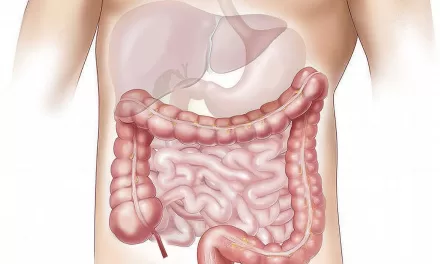February 14, 2025
A recent study published in PLOS Medicine on February 13 has revealed that adults with a history of depression develop long-term physical health conditions approximately 30% faster than those without depression. The findings suggest the need for a more integrated approach to managing both mental and physical health.
Conducted by Kelly Fleetwood and her team at the University of Edinburgh, United Kingdom, the research highlights that depression should be viewed as a ‘whole body’ condition rather than solely a mental health issue. Their study underscores the urgent need for healthcare systems to move away from treating individual conditions in isolation and toward a more comprehensive model that accounts for coexisting mental and physical health challenges.
Study Findings
The study analyzed data from 172,556 participants in the UK Biobank study, aged between 40 and 71 years, who completed baseline assessments from 2006 to 2010. Researchers examined 69 physical conditions over an average follow-up period of 6.9 years.
At the start of the study, participants with a history of depression had an average of three physical health conditions, compared to an average of two conditions among those without depression. Over time, individuals with depression developed an additional 0.2 physical conditions per year, compared to 0.16 conditions per year in those without depression.
The most commonly developed health conditions included:
- Osteoarthritis: 15.7% in individuals with depression vs. 12.5% in those without.
- Hypertension: 12.9% vs. 12.0%.
- Gastroesophageal reflux disease (GERD): 13.8% vs. 9.6%.
Implications for Healthcare
The findings indicate that a history of depression serves as a significant predictor for the development of chronic physical conditions in midlife and older adulthood. This further reinforces the idea that depression is not only a psychological condition but also a contributing factor to long-term physical deterioration.
The study’s authors advocate for a shift in healthcare systems, arguing that the current model—which treats conditions separately—fails to address the interconnected nature of mental and physical health. They suggest that integrated healthcare services, which provide holistic treatment strategies, could significantly improve patient outcomes.
Fleetwood and her colleagues emphasize, “People who have experienced depression are more likely to develop long-term physical health conditions such as heart disease and diabetes; however, existing health care systems are designed to treat individual conditions, instead of individual people with multiple conditions. We need health care services to take an integrated approach to caring for people who have both depression and long-term physical health conditions.”
Conclusion
This study provides strong evidence that depression should be regarded as a broader health issue rather than simply a mental disorder. As healthcare professionals and policymakers continue to refine treatment strategies, integrating mental health care with physical health management may be crucial in reducing the long-term burden of chronic illnesses in individuals with a history of depression.
Disclaimer: This article is for informational purposes only and should not be considered medical advice. Readers are encouraged to consult with healthcare professionals for personalized medical guidance.
For more details, refer to the original study: Fleetwood KJ, et al. “Depression and physical multimorbidity: A cohort study of physical health condition accrual in UK Biobank.” PLOS Medicine (2025). DOI: 10.1371/journal.pmed.1004532











